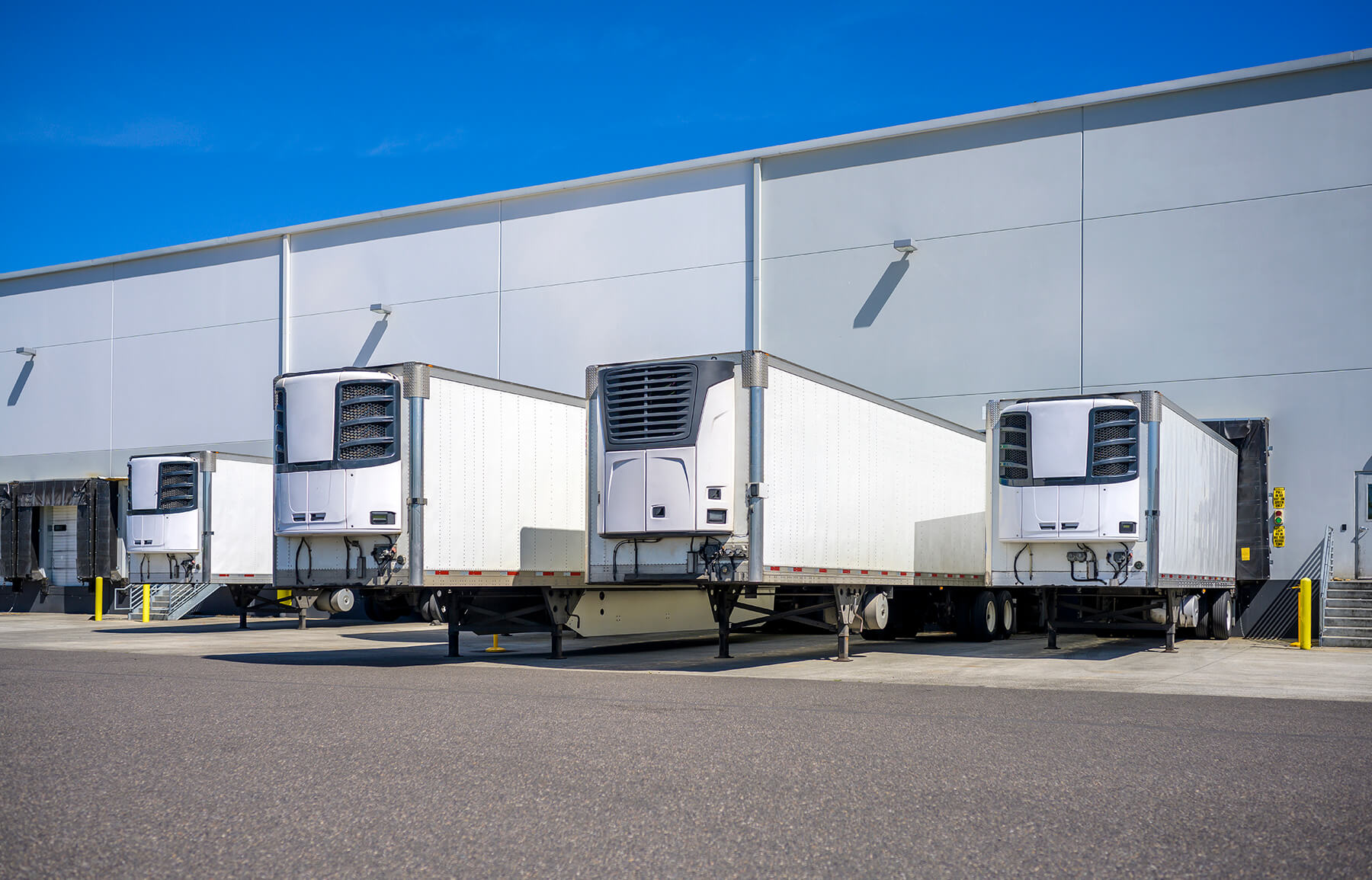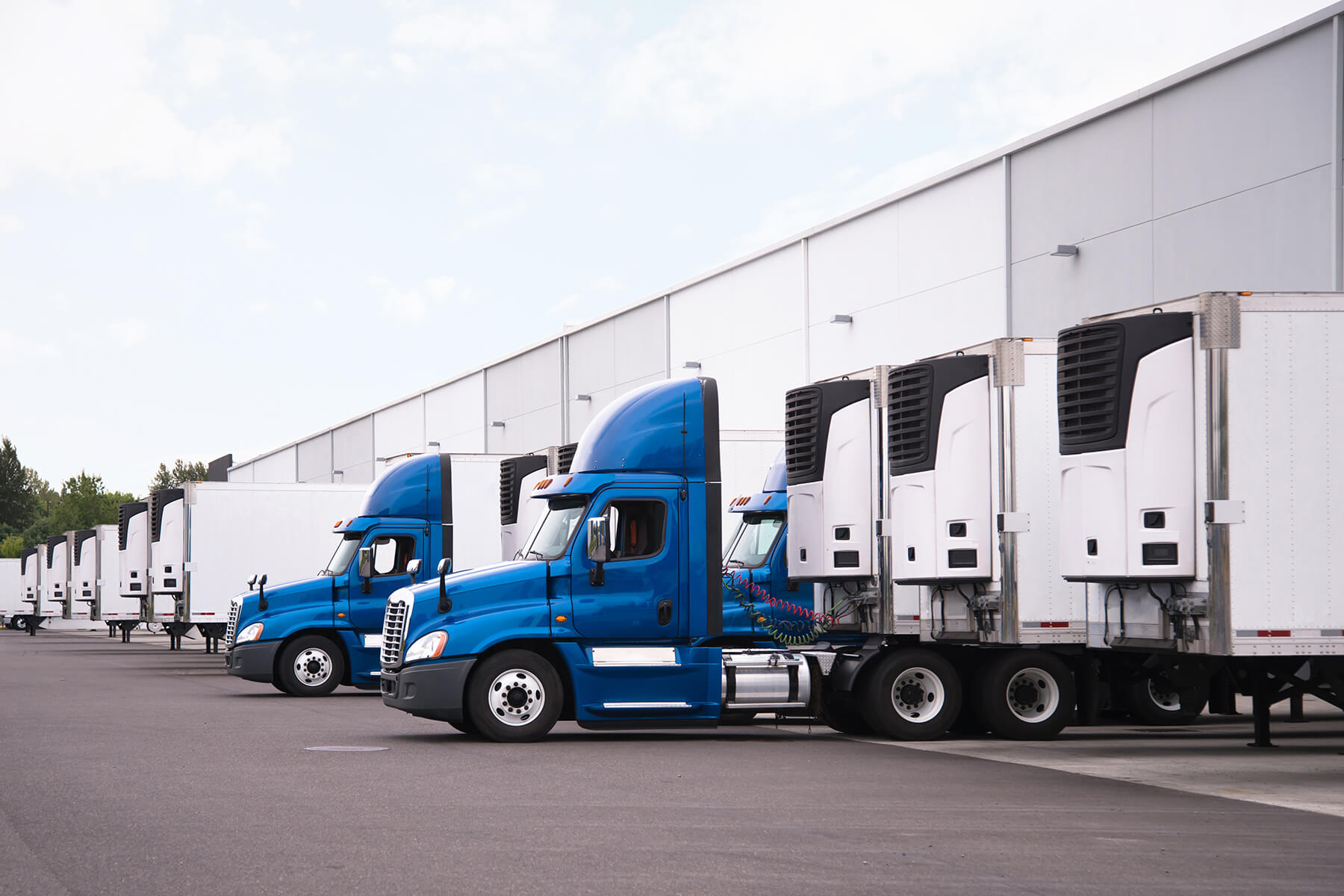
Refrigerated trailers, also known as reefer trailers, are an essential component of the cold chain logistics industry. These specialized vehicles are designed to transport temperature-sensitive goods such as fresh produce, frozen foods, pharmaceuticals, and other perishable items. For businesses using commercial rental fleets, having well-insulated reefer trucks and trailers is crucial to meet the diverse needs of clients across various industries.
The insulation used in reefers plays a vital role in maintaining the desired temperature range within the cargo area, regardless of external weather conditions. This is particularly important for rental equipment, as they may be used for various products with different temperature requirements, from deep-frozen goods to chilled fresh produce.
The insulation system in a reefer truck or trailer typically consists of several components:
1. Wall Insulation: This forms the primary barrier against heat transfer from the outside environment.
2. Floor Insulation: Crucial for preventing heat ingress from the road surface.
3. Ceiling Insulation: Helps combat heat gain from solar radiation.
4. Door Insulation: Ensures temperature integrity is maintained during loading and unloading.
Considering the type and thickness of insulation material for refrigerated trailers is instrumental for ensuring optimal temperature control and energy efficiency. It affects not only the temperature control capabilities of the trailer but also its payload capacity, fuel efficiency, and overall operational costs. Additionally, the insulation must be durable enough to withstand the rigors of frequent use, potential impacts during loading and unloading, and varying climate conditions.
In the competitive commercial vehicle rental market, working with a reliable partner that offers a wide range of reefer trailers with high-performance insulation can be a significant advantage. It allows businesses to get quick, on-demand access to vehicles that can handle a wider range of temperature-sensitive cargo, potentially expanding their footprint, providing added peace of mind to customers, and increasing the potential for protecting goods.
As we dig deeper into the specific insulation options, it's important to consider how each type addresses these key requirements for commercial reefer trailer applications.

Polyurethane foam is one of the most widely used insulation materials for reefers. It offers several key benefits:
XPS foam boards are another popular choice for insulation on refrigerated trailers. Benefits include:
While less common in reefer applications, fiberglass insulation may be used in some cases. It offers:
The effectiveness of insulation on reefer trailers is measured primarily by its ability to maintain consistent internal temperatures. Key benefits of proper insulation include:
When selecting the best insulation for renting commercial reefer trailers, several factors should be considered:

Reefer trailers are specialized vehicles vital for transporting temperature-sensitive goods in the cold chain logistics industry. Proper insulation is essential for maintaining desired temperatures in the cargo area, regardless of external conditions.
The experts at COOP by Ryder can help your business choose the right trailers to transport your valuable goods locally or from coast to coast. Whether you’re looking for specialized trailer units with specialized temperature control or standard, high-quality, cost-effective equipment, contact us for a personalized quote on trailer rentals. Get the competitive advantage you need to rent trailers with complete flexibility.